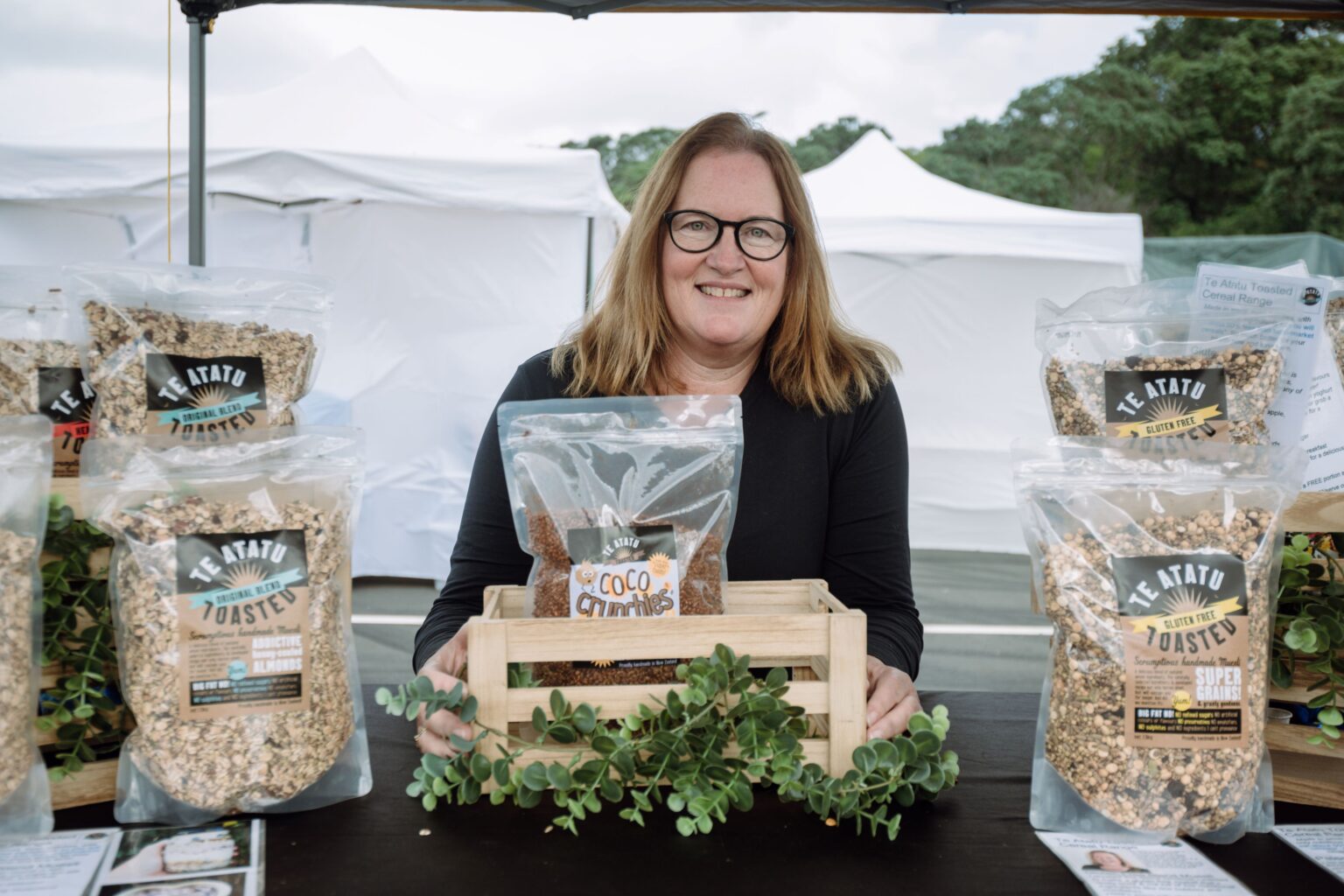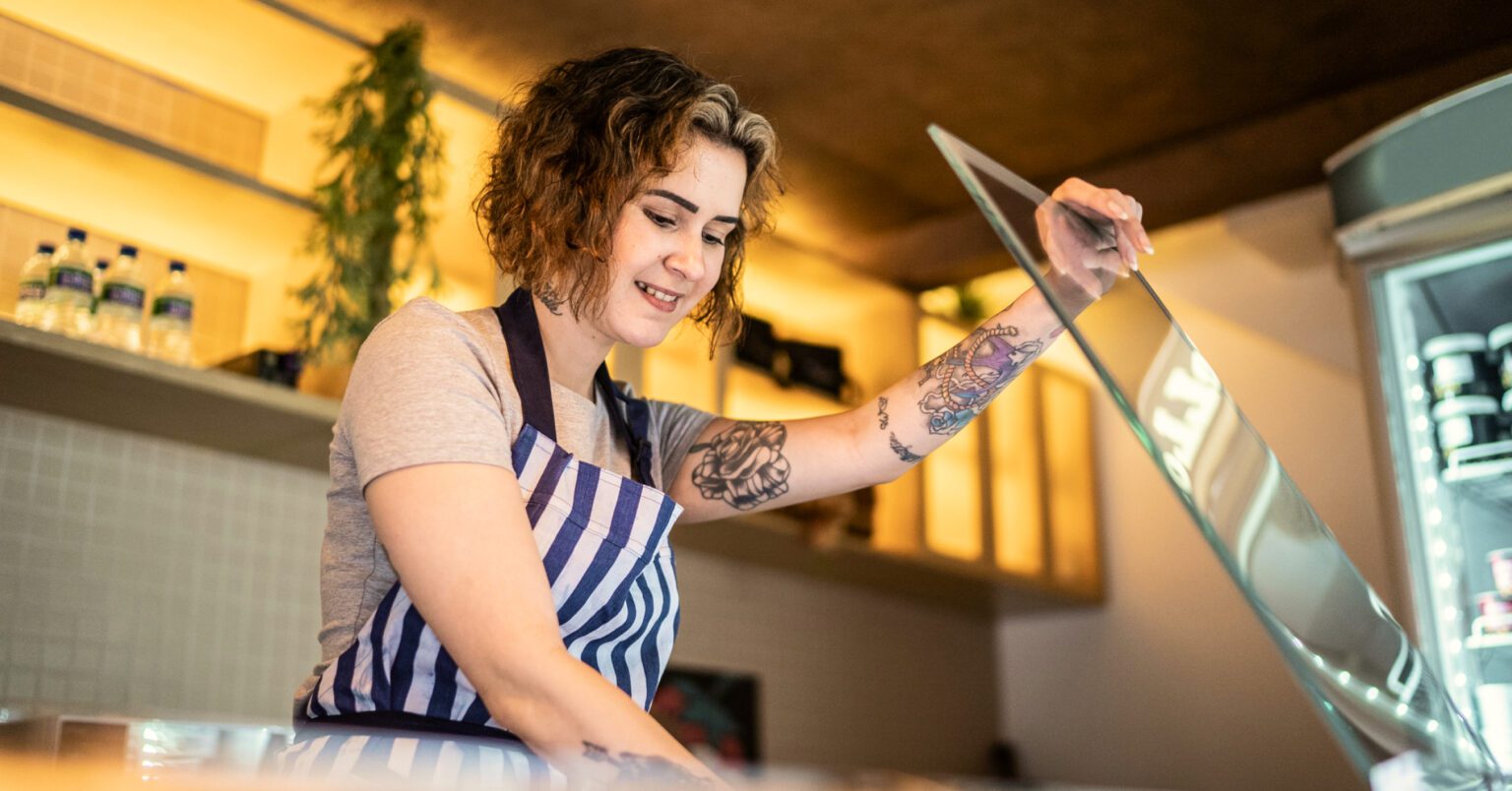As Sikhs, the Singhs may have felt like the minority in Napier when they moved there 11 years ago but they were welcomed with open arms. When COVID hit, they saw an opportunity to give back to the community that had supported them. Their Creagh St Store became a hub of generosity.
Grocery stores in small communities are often more than the sum of their parts: they are places to connect, to feel safe and to be welcomed. Never more so was this the case than during COVID. At Bossman Dairy, the elderly and the vulnerable were looked after and everybody was welcome – whether for a loaf of bread or a friendly chat.
A culture of giving
Jazz Singh is on a break from a shift in his parents’ Creagh Street Store in Te Awa, Napier. As well as working in the store that locals know affectionately as ‘Bossman Dairy’, Jazz also works as casual service consultant for a bank after recently graduating as valedictorian from a Bachelor of Commerce. His brother Gurj and sister Simranjit Kaur have working lives outside of the store too, but it remains the heart of the Singh family and everyone helps out when they can.
“Dad (Jagiwan Singh, known affectionately as Bossman) was only 19 when he came to New Zealand from India in the late 1980s. He lived all over the country – including just down the road from the shop he would eventually buy,” says Jazz.
“He and my mum (Anu Singh) ended up settling in South Auckland where my brother and sister and I were all born and raised. I am a Sikh, and the culture has been passed down through the generations. A big part of the culture is to help others. Giving what you can – even when you don’t have much – was an important part of our upbringing. Dad taught us that when you see people in trouble, you go and help, without judgement.”
Opportunity to give back
When the opportunity to buy the Creagh St Store came up 11 years ago, the family moved to Napier.
“We were the only turban-wearing Sikhs in the community at that time,” remembers Jazz, who’d grown up in a more diverse community in South Auckland.
“But we were so blessed with this community. Our neighbours and customers really supported us and helped us to settle in – at school, at the rugby club and in the wider community.
“When COVID happened, that was our opportunity to give back.”
Building a legacy of generosity
And give, they did. Essentials like milk, bread and flour were available to those in need, including the elderly and others who couldn’t get to the shop.
“We would prepare a bag of supplies, all cleaned with us wearing masks and gloves, and then do a contactless delivery,” explains Jazz.
Did people take advantage of this generosity?
“Look, the thing is, my dad would always say, if 95% of the people are getting what they need and 5% are taking advantage, who cares? He’d let us decide if we thought someone could do with something extra. Dad would say a loaf of bread or litre of milk isn’t going to kill us. If someone needs it, give it to them.”
The shop stayed open over COVID and it took a hit like a lot of other businesses. But the Singh family was able to keep operating – and keep giving. Jazz explains the Sikh custom of Dasvand – putting aside 10% of one’s earnings or resources to help those in need.
“We had that 10% put aside not for us, but to use in a situation like this. If you’re in a position to help, then why wouldn’t you? And we were in a position to help.”
The Creagh St Store started something of a local movement over the period.
“A lot of people and businesses wanted to help but didn’t know where to start,” remembers Jazz. The Creagh St Store started the momentum and other businesses pitched in with their own giving initiatives.
No matter what
“We want to make everyone’s first experience in the store the best ever and create a good culture. Sometimes local kids drop by just to have a yarn. It’s a safe place for them and we let them know they can wait inside for their lift or just to hang out for a bit. Dad has always been supportive of kids who’ve done it tough, even with something as simple as making sure a kid had lunch for the day,” says Jazz.
“Our community knows we are here to help no matter what. My parents know what it means to struggle. So when they see someone doing it tough, it reminds them of what they experienced and it makes them happy they are now in a position to help.”
It’s exactly that generosity of spirit their customers love, with one nominating the store as their Local Business Hero with these words: “Every member of this family is friendly, helpful and always smiling. They get to know all their customers and I’ve never walked into a shop that makes you feel so welcome.”
“Dad was so grateful to be nominated,” says Jazz. “He doesn’t do this for money or recognition. He always says that money comes and goes but what you do stays on as your legacy. It’s about respect, for yourself and for others. That’s an important part of our culture.”
Resilience and compassion
Being named the Prospa Local Business Hero for 2021 comes with $10,000 worth of prizes, including a $5,000 Stuff advertising package, a $2,500 cash prize from Prospa, a $2,500 Neighbourly package and a NZ Local Business Hero Winner Certificate.
“From the sheer number of nominations this year, we can see that tough times brought out the best in NZ businesses and their communities,” says Adrienne Church, General Manager New Zealand at Prospa.
“The Creagh St Store exemplifies the resilience and compassion that came to the fore over those long, hard months. It was really something to hear about the generosity of the Singh family and the momentum it gave other businesses in the area to step up where they could.
“It’s never a surprise to see the Sikh community giving when people are in need, but it’s always inspiring.”
“We really appreciate our customers nominating us,” says Jazz. “We weren’t out for recognition. We didn’t even know we’d been nominated! Our story is just one little example. There are so many people out there helping and giving. They inspire us to keep doing our best.”
“Dad and the whole family are really thankful to our loyal and supporting customers. We wouldn’t be here without their ongoing support.”
Sign up to the Prospa Blog newsletter to learn how other small businesses are becoming success stories in their local communities.




